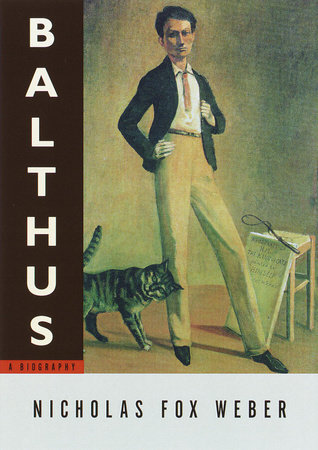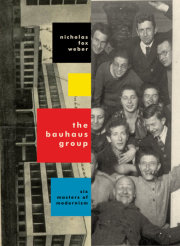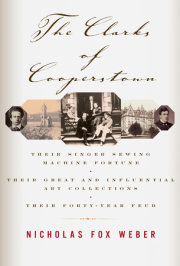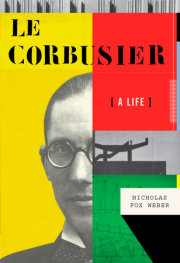"I treated art as the supreme reality and life as a mere mode of fiction."
-- Oscar Wilde
i.
When Balthazar Klossowski turned six, he had a large birthday party in his family's apartment in Paris. Birthdays were a funny business for "Baltusz" -- as everyone called him. Since he had been born on February 29 in 1908, his family did not know precisely when to celebrate except on leap years. Nonetheless, as the boy anticipated his friends' arrival, he was in high spirits. He had a plan.
It was a cozy home full of art and books -- in a building on the Rue Boissonade, near the Boulevard Montparnasse in the fourteenth arrondissement. Baltusz's parents were both painters, his father an art historian as well, and along with Baladine's winsome watercolors and Erich's vigorous oils hung canvases by Cézanne and Delacroix, as well as a Géricault drawing and Japanese woodcuts. Baltusz's little friends entered dressed in their finery, in his eyes "all very beautiful with their white lace collars."
Once the nurses and governesses left the children on their own, the birthday boy took charge. Addressing the other youngsters, Baltusz announced that the time had come for them "to eat badly." There was a chocolate cake, and they all plunged in. Everyone got his collars and cuffs filthy with frosting. Everyone except for Baltusz, who remained spotless. When the nurses and governesses returned, all the other children were chastised or slapped, while Baltusz escaped punishment.
The story was told to me a lifetime later by the eighty-two-year-old Balthus -- the Count de Rola -- in the sitting room of his vast eighteenth-century chalet in a small French-speaking village in the Alps. "It's part of my bad side," he explained, referring to the way he had trapped others into temptation while keeping himself clean.
"A very naughty boy, and until now he has never changed," laughed his forty-eight-year-old Japanese-born wife, Setsuko, who had encouraged him to tell me the tale.
I had met both of them for the first time that afternoon. Balthus's reputation was that he loathed writers on art and would not grant interviews. In an era when many successful artists preen like movie stars, he has managed to give the impression that he prefers to live in isolation, as if the occasions when he has been quoted or photographed are accidental slips. In 1977, at the time of a rare Balthus show in New York -- the first in a decade -- Robert Hughes wrote of the artist in Time magazine that "at 69 he has no public face" and that there were no anecdotes about him in circulation, thanks to his own careful control. I had scant hope that he would alter his reclusive pose for me.
John Russell had begun his introduction to the catalog of the 1968 Balthus retrospective at the Tate Gallery with the statement, "What is private must remain so: that is Balthus' attitude, and it is at his insistence that this catalog contains no biographical matter. 'The best way to begin,' he said when apprised of our customs, 'is to say: "Balthus is a painter of whom nothing is known. And now let us have a look at the paintings." ' " That statement, often cited since, has become the gospel on the artist. It is especially provocative given the eroticism and deviltry and sinister overtones so many viewers see in his paintings of comatose teenagers and seemingly spent naked women.
When his major retrospective opened in Paris at the Centre Pompidou in 1983, critics in search of a lead on the work from Balthus himself could do no better than to fall back on his 1945 pronouncement, "I refuse to confide and don't like it when people write about art." The exhibition catalog, although rendered heavier than the combined volumes of the Paris phone book by its many essays and reproductions, presented no straightforward biographical data. It was pointed out that the largest book on Balthus, done with his cooperation, did not even provide his birth date. And the people in Balthus's constellation acted as if they had signed a secrecy oath. To a journalist from Le Monde, the artist's son Thadée declared politely that he would not speak about his father because his father did not want people to; moreover, he shared Balthus's view that to talk about painters was not to talk about paintings. Pierre Klossowski, the artist's brother, himself a famous writer and leading intellectual figure -- known for his lifelong devotion to the work of the Marquis de Sade -- explained that to discuss Balthus would give him migraines. Sylvia Bataille, an old friend who was the widow of Balthus's acquaintance the "excremental philosopher" Georges Bataille and the mother of one of Balthus's early mistresses, allowed that Balthus would never forgive her if she spoke. Other close acquaintances, expecting approaches because of the fanfare over the Pompidou show, disconnected their telephones.
But Balthus had readily acceded to my request that I come see him about the book I wished to write about him. On that first occasion, as we sat side by side on an eighteenth-century sofa, he was gracious and compliant, answering all of my questions and offering numerous anecdotes. Although he had forbidden my turning on a tape recorder, he had sanctioned my use of notebook and pen, and voiced no objection to my writing continuously. The story of his sixth birthday party, told with a great grin on his face, seemed, however, clearly a warning. Balthus could manage to get everyone else in trouble while keeping only himself above the fray, and he delighted in doing so.
ii.
Initially Balthus failed to answer the letter I sent him from Connecticut saying I had been asked to write a book on him and would like to meet him. So, having learned his phone number from Swiss information -- it was listed under "Klossowski" -- I steeled up the nerve to dial it early one morning about a month before that first visit in 1990. When someone with a gravelly yet tremulous voice answered the phone in slow and refined cadence, I asked, in my best high-school French, "Est-ce que je peux parler avec le Comte de Rola?"
"C'est lui-même!" the voice bellowed back authoritatively.
From then on, this man of such terrifying reputation, so ferocious in his portrait photos, was the height of graciousness. First he suggested that we switch to English. This, he offered, was his first language; he was one-quarter Scottish, he told me, and as a child had had a Scottish nanny. He readily granted my request that I be allowed to call on him. Solicitous about my travel plans, he scheduled a Monday morning three weeks hence that suited me well. The count gave me meticulous instructions on how to change to the small mountain train in Lausanne. He wondered if I knew his part of Switzerland, and seemed particularly pleased when I said that when I was in college I had dated a girl in Gstaad, only half an hour away; like a concerned older relative, he asked me her family name. He did not know these people, but when I explained that they could hardly ever use their large Gstaad chalet anymore because they now had to spend over half their time in another canton for tax purposes, he chuckled knowingly.
I arrived in Rossinière on the afternoon prior to our scheduled rendezvous. Walking through the village to the one pension that was open in a season suitable for neither hiking nor skiing, I was struck by the resemblance of everything around me to certain Balthus paintings. People in this mountain hamlet were walking through the small town square and talking in the sole café as if they had been absorbed in the same routine forever. This seemed a place where time had been frozen -- not out of nostalgia or the deliberate veneration of an earlier epoch, but because modern madness had not crept in. Every poster and vista bespoke childhood pleasures -- chocolate and snow. There was something magical in the atmosphere, yet also inaccessible, the people remote in a particularly Swiss way.
It seemed as if everything was fitting in place. But when, as instructed, I phoned on the morning of our appointed visit, Balthus was irritated. He could not understand who I was. He then explained in a laughing voice that he had hearing problems and needed to install an instrument "like a small shrimp" -- pronounced scha-rimpp, the intonations of Breslau tinging the more dominant London cadences -- into his ear. Then, with a return to emphatically British pronunciation, he declared that I should come in the afternoon. He greatly looked forward to meeting me "at last" -- these last two words uttered in a dramatic adagio.
I should have no trouble finding the house, Balthus assured me. "It is the biggest house in the village, the largest chalet in all of Switzerland," he said with a hint of boastful little boy in his voice.
When I arrived at Le Grand Chalet, it seemed, indeed, the size of one of the Alps surrounding it. I was let in by a uniformed butler. But then there was further confusion. No one seemed to know where the count was, and as I sat alone in the large living room
-- looking intently at a framed photo of the thirteen-year-old Balthus between his mother and Rainer Maria Rilke, who was her lover at the time -- I heard a lot of running around, followed by a prolonged silence. This lasted nearly half an hour.
Finally Balthus entered. The gaunt figure in a Japanese vest, flannel shirt, and baggy tweed pants limped on his cane. It was he who began the conversation. "So here I am: a disabled old man," he uttered with a smile, sounding like a Shakespearean actor playing Lear at the end. I protested that he looked fit and healthy. He politely contradicted me, insisting, "No. That is the truth." The brief exchange seemed to set the tone of our encounter: there was to be no glossing. Balthus insisted on candor and honesty, and he would be the one to have the first and last word.
We talked in the elegant salon and had high tea in the dining room. Setsuko periodically joined us, as if she were checking me out; it was during one of these interludes that she urged her husband to tell me about his sixth birthday party. By the end of the afternoon, we had had more serious discussion than I had dreamt possible about Balthus's art and life. He made me feel privy to a range of unknown details -- who was who in his paintings, the correct facts of his ancestry, the details of his friendship with Picasso. Our rapport was facilitated by his perfect idiomatic English, which he spoke with a distinguished Oxonian accent, although certain words took on a surprising, guttural German ring.
But in the course of that day, despite my joy at the depth and range of our conversations, I became increasingly struck by how haggard my subject looked. Although his ornate vest might have been worn by an emperor, his other clothing was frayed and tattered -- as if he were too old to bother to replace them. His skin was pale and translucent. He was animated, but seemed merely to be hanging on to life.
In the evening, however, there was a change. Balthus and Setsuko invited me to join them for dinner with some other guests at eight. The Filipino butler -- named Leonardo, much to his employer's delight -- was now in a white jacket and white gloves, more formal than his daytime uniform. He again led me into the living room, and again I waited.
On this occasion, however, little time elapsed before the Count and Countess Klossowski de Rola walked in together. Balthus was in an exquisitely tailored gray flannel suit with intricately shaped, Edwardian-style lapels. It hung easily on his lean body. The jacket cuffs were rolled up a turn, so that he seemed both very formal and completely casual. He wore an English-style shirt of bold stripes, a solid tie, and a plaid vest with brass buttons. Setsuko was ravishing in a gold brocade kimono, flecked in a deep red that she had matched with her nail polish.
Together they were a flawless composition: her cheeks a broad plane in opposition to the sharp angles of his Voltairian profile and beak of a nose. He was, indeed, a count: with just a touch of Dracula. She was an Oriental potentate, reserved and statuesque.
The other dinner guests soon arrived. A jolly, white-haired English couple named the Devenishes, they had been the previous owners of Le Grand Chalet. The five of us had drinks in the living room. Setsuko offered pistachio nuts from a large silver dish and announced with a look of unabashed delight that these were "true Iranian pistachios -- brought by the Aga Khan."
Soon the second of the two Filipino menservants, Virgilio, also clad in white jacket and gloves, announced dinner. As we walked down the hall to the dining room, Balthus whispered to me that he was as amused by Virgilio's name as by Leonardo's. Looking especially gleeful, he added that his servant reminded him "of Friday in Robinson Crusoe."
Everyone was in high spirits throughout the long meal. The Devenishes explained to me that they were former innkeepers, and that under their ownership Le Grand Chalet had been a hotel. This had been so since the nineteenth century, when Victor Hugo had stayed there. Mr. Devenish said that when they sold the place to Balthus, they had no idea who he was. In fact, for most of the thirteen years Balthus had been in Rossinière, the local population simply thought Balthus was a retired businessman who painted as a hobby -- until the recent appearance of an article in
Paris Match.
Balthus invited me to stay for a brandy after the other guests left. As if I were the old acquaintance and they the new people, he asked if I agreed that they were "quite amusing." "I rather like Devenish," he said in a slightly patronizing way. And then, as if to assure that we were brethren in taste, he inquired, "Don't you?" When I replied that I had appreciated the Devenishes' way of including me, Balthus said that that was simply because they were innkeepers and it was part of their profession.
The second day in Rossinière, however, did not go nearly as well. Balthus was having stomach problems and could not see me in the morning when I arrived according to plan; Setsuko said that she or he would call me that afternoon to say if I might come later on. When neither of them had phoned by 6 p.m., I decided that I had been naïve in assuming that yesterday was really the start of something and had been as successful as it appeared; clearly Balthus had changed his mind about me, and that would be my sole audience.
Waiting at the silent guesthouse, I was also irritated with myself over one tactical error I had made. I had suggested to the count, toward the end of that first wonderful afternoon and in anticipation of the evening ahead, that, American-style, he might stop calling me "Mr. Weber" and use my first name instead. To this he had replied, with a slight frown and a glare more the domain of boarding-school headmasters than of avant-garde artists, "But I am European." I did not want to be out of line again by taking the initiative.
However, when I finally disobeyed instructions and telephoned myself, Setsuko went out of her way to make clear that the reason she had not called was very specifically because with Balthus's stomach things might improve at any moment. They were both very sorry.
Her husband would phone me the next morning, and I should wait for the call.
I would subsequently learn that Pierre Matisse used to spend two or three days at a time cooped up in his room at the Hotel Hassler in Rome -- having breakfast, lunch, and dinner delivered by room service, even when his young wife yearned to go out if only for an hour's jaunt to a simple trattoria -- while awaiting Balthus's phone calls. Those were the years when Balthus was the director of the Villa Medici, a few hundred yards from the sumptuous Hassler. Matisse, who was Balthus's dealer, was hoping to be summoned to the artist's studio to see any paintings Balthus might have finished since the previous visit. This was in the mid-1960s, when Balthus's work had only recently begun to fetch big prices, and since he had a notoriously limited output -- sometimes, in that period, not even completing a picture a year -- Matisse was always eager to see what he might have to offer clients. At the time, it was a new development that Balthus was doing better than earning his bare subsistence, and one might have expected the artist to welcome the man who sold his paintings. But it didn't work that way -- as I knew even before I had heard Balthus's voice or set foot in his chalet. For Balthus's paintings had made it clear that I was dealing with someone for whom power and control were paramount issues.
Yet the next day Balthus cheerfully told me -- when I phoned him just before lunch, since he had again failed to call me as promised -- that he was quite a bit better. He and Setsuko had just returned from an outing to the bank in Château-d'Oex, about twenty minutes away. He explained that he always accompanied his wife on such errands, that he never allowed her to go to the bank only with a driver; a woman required the presence of her husband for financial transactions. Balthus said he was just recuperating from the journey, and then was planning on ringing me. In any event, I should come over at 3 p.m.
Again we had a wonderful, easy afternoon. We sat on the delicate sofa in the living room as Balthus chain-smoked and answered some of my questions about his art, which we looked at in a large Skira book opened on the coffee table. A penetrating light, bouncing off the snow-covered mountains, streamed in from behind. With his hollow cheeks, aquiline nose, wide, dark eyes, and taut, wrinkled skin, Balthus had the authority of age and the intensity of the wisest, most seasoned intellectuals. His speaking was metered, the diction precise; his erudition and the meticulousness of his word choice and ideas made him seem the source of irrefutable truths.
Most of the time, Balthus was encased in cigarette smoke, but in the brief intervals between cigarettes, he was as scent-free as a little boy. It was as if he really belonged to childhood, which I knew to be his preferred period of life -- and had indeed had no more birthdays than his leap-day birth date allowed. It seemed that his inner workings and even his skin, as soft as it was creased, were those of a youth who spent most of his time in the mountain air. If there was any odor at all that emanated from the octogenarian, it was -- for reasons I cannot explain -- the very slight aroma of English butterscotch candy.
This impression of innocence was confirmed that second afternoon when Setsuko joined us in the dining room at five for tea. We ate pancakes with some Vermont maple syrup I had brought as a gift on my arrival day -- and which they said was especially exotic to them because they had never been in America. Balthus was like a schoolboy as he downed his afternoon snack. But then the couple conferred in Japanese. I felt as if I were being handled. After conferring in this private code, Setsuko switched to English to say her husband wondered if I would like to stay for a simple dinner later on. There would be no need to go back to the pension to change, as this would be more informal than our evening two days earlier. And would I come again tomorrow?
I explained that I could not change my arrangements to fly back to the States the next day but would love to return. We all agreed that this would make sense about a month later, after Christmas and New Year's. During the holidays, they would be inundated with their adolescent daughter and her friends and with Balthus's older children from his first marriage, as well as by in-laws and their young granddaughter and, they were both happy to say, the artist's ex-wife, Antoinette. Setsuko explained that they were all close friends; Antoinette had woven all the needlepoint chair covers on which we were sitting. We should discuss all this when I came back.
The second journey to Rossinière ultimately proved as complex to organize as my second afternoon with Balthus; the Klossowskis repeatedly scheduled and canceled it, with me always being the one to make the phone calls. But I did end up back at Le Grand Chalet six weeks later, in January 1991, this time staying in the house, talking with the artist morning, noon, and night for ten days.
Copyright © 1999 by Nicholas Fox Weber. All rights reserved. No part of this excerpt may be reproduced or reprinted without permission in writing from the publisher.









